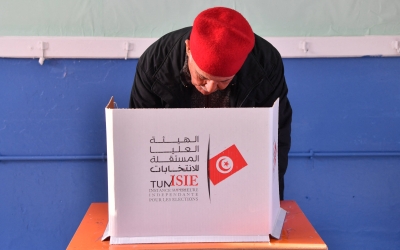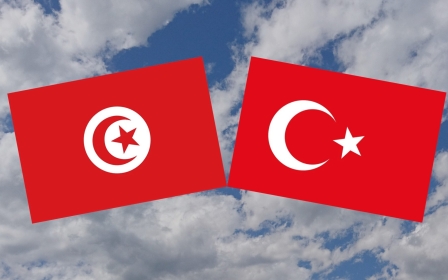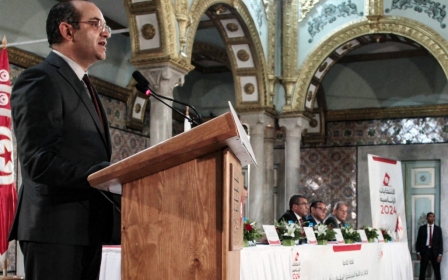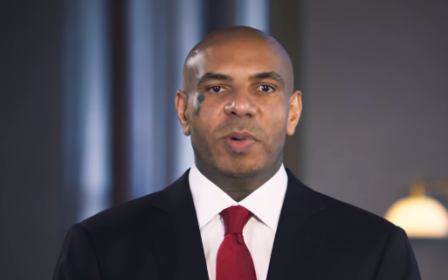Tunisia: Journalists and politicians suffer abuse in prisons, groups warn
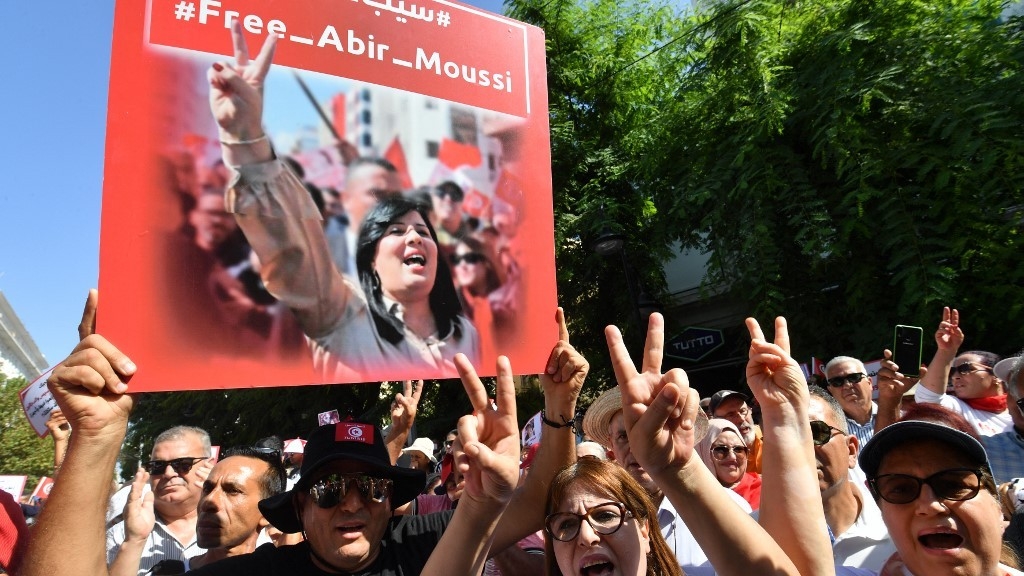
Journalists and politicians in Tunisian prisons are suffering from medical negligence and abusive treatment as the country prepares for the presidential election next month, according to several recent reports.
The National Union of Tunisian Journalists (SNJT) on Tuesday raised concerns over the deteriorating health of Mohamed Boughalleb, a journalist imprisoned since March on charges related to his work.
The union said that Boughalleb, who suffers from diabetes and hypertension, has been denied adequate medical care, resulting in a significant decline in his health due to a lack of treatment and essential medications. He has also been barred from corresponding with his family, the union added.
Last month, the SNJT called for an investigation into the treatment of Sonia Dahmani, a lawyer and commentator sentenced to eight months in prison this week, and journalist Chadha Hadj Mbarek, who has been imprisoned since 2021.
The union said that Dahmani had endured “practices that violated her physical integrity and human dignity” while detained at Manouba prison in the Tunisian capital.
New MEE newsletter: Jerusalem Dispatch
Sign up to get the latest insights and analysis on Israel-Palestine, alongside Turkey Unpacked and other MEE newsletters
“The family of Sonia Dahmani and her lawyers indicated that she was subjected to an intrusive search and was forced to remove all her clothes to be examined and to kneel, violating her human dignity,” the union said, adding that she was also subject to “violation of the most basic rules of respect for the sacred character by touching her body and morally assaulting her”.
The SNJT reported that Mbarek’s health had deteriorated due to a lack of care while in detention.
Earlier this week, the Free Destourian Party (PDL) said that its president, Abir Moussi, who has been imprisoned since October 2023, has been subjected to “deliberate medical negligence” in jail.
In August, a Tunisian court sentenced Moussi to two years in prison after she opposed the legislative election process.
Amnesty International described Moussi's detention as arbitrary and said the charges against her were related to her exercising the right to freedom of expression and peaceful assembly.
Moussi's party said the medical neglect she has been suffering is intended to pressure her into retracting her views.
'Escalation campaign against the opposition'
Rights groups and the US State Department have condemned the conditions in Tunisian prisons, describing them as abusive.
According to Prison Insider, a monitoring group, Tunisian prisons are marked by dilapidated facilities, poor hygiene, limited access to healthcare, inadequate food, insufficient activities and visiting rooms, violence and even torture.
In March, the death of a doctor in prison, just one week after being placed in pretrial detention in a case related to his medical practice, sent shockwaves through the country.
Mohamed Hajji, a psychiatrist, reportedly contracted a severe lung infection just days after his incarceration, aggravating his chronic respiratory failure, which he had overcome many times in the past.
His lawyer submitted a detailed report to the relevant authorities on the severity of his health condition and requested his release for treatment. However, his detention was extended and he ultimately died in custody.
“A doctor dying in prison is a dangerous precedent,” said Rym Ghachem, a psychiatrist and executive board member of the Order of Physicians. “He was old and sick, and he did not receive the care he needed in prison.”
Human rights organisations such as Human Rights Watch (HRW) have accused President Kais Saied, who has been in office since 2019, of prosecuting and excluding potential candidates for the presidential election in an attempt to secure his re-election.
Saied has gradually tightened his grip on power using measures described as a constitutional coup, including dissolving parliament in 2021 and seizing judicial powers, allowing him to rule by decree.
In recent years, many opposition figures have been jailed, including Ayachi Zammel, one of only two presidential candidates permitted to run against Saied in the forthcoming election, who was arrested last week.
On Tuesday, the Ennahda party said that security forces detained senior members Mohamed Alkali, Mohamed Ali Boukhatim and others in what the movement described as “an escalation campaign against the opposition” ahead of the vote.
Ennahda's leader, Rached Ghannouchi, has been imprisoned since April 2023 for comments deemed critical of Saied.
Middle East Eye delivers independent and unrivalled coverage and analysis of the Middle East, North Africa and beyond. To learn more about republishing this content and the associated fees, please fill out this form. More about MEE can be found here.


